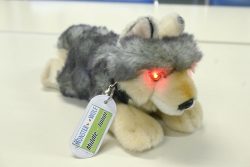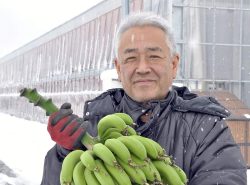NIID to Study ‘Super-Resistant Mosquitoes’ for Border Control Improvements; Learn About Where They Live, How They Breed

The National Institute of Infectious Diseases
16:27 JST, April 21, 2024
The National Institute of Infectious Diseases (NIID) will start work as early as May on a large-scale genetic analysis survey in Vietnam, Cambodia, Taiwan and five other Southeast Asian countries on yellow fever mosquitoes, which can transmit dengue fever and other infectious tropical diseases.
Genetic mutations have led to the emergence of yellow fever mosquitoes with a strong resistance to insecticides
In Japan, the mosquitoes have been found during airplane inspections. The NIID intends to determine the habitat and other characteristics of the mosquitoes through the survey and use the findings in border control operations.
The yellow fever mosquito is a type of aedes mosquito that lives in a wide area, including Central America, South America and Southeast Asia, with southern Taiwan as its its northern limit. It transmits dengue and Zika fever, which can cause high fevers and headaches.
There is no effective treatment for dengue, and an estimated 20,000 people die due to the disease worldwide each year.
The NIID has analyzed the genes of yellow fever mosquitoes collected in urban areas of Vietnam and Cambodia. It reported in a paper in 2022 that it had confirmed the emergence of “super-insecticide-resistant mosquitoes,” which are unresponsive to a common insecticide caled permethrin.
The upcoming study will be conducted in collaboration with national laboratories and universities in Thailand, Malaysia, Singapore, Laos, Indonesia and Taiwan, in addition to Vietnam and Cambodia.
Up to 10,000 mosquitoes will be collected at hundreds of locations, and their genomes will be analyzed at the NIID. The goal is to determine the habitat and reproductive capacity of the super-insecticide-resistant mosquito, among other things, and to grasp the differences in genetic information of the mosquitoes between countries and regions to identify their cross-border routes.
The yellow fever mosquito is vulnerable to cold and does not live in Japan, but they have been found in the inspections of airplanes at international airports almost every year.
In 2014, about 160 people were confirmed to have had dengue fever in Japan, which was the first time in 70 years.
“If we can determine through genetic analysis which countries and regions yellow fever mosquitoes come from, we can narrow down which aircraft should be inspected in Japan. We would also like to explore new methods of killing the insects,” said Shinji Kasai, director of the Medical Entomology Department of the NIID.
Top Articles in Society
-

Producer Behind Pop Group XG Arrested for Cocaine Possession
-

Man Infected with Measles Reportedly Dined at Restaurant in Tokyo Station
-

Man Infected with Measles May Have Come in Contact with Many People in Tokyo, Went to Store, Restaurant Around When Symptoms Emerged
-

Woman with Measles Visited Hospital in Tokyo Multiple Times Before Being Diagnosed with Disease
-

Australian Woman Dies After Mishap on Ski Lift in Nagano Prefecture
JN ACCESS RANKING
-

Producer Behind Pop Group XG Arrested for Cocaine Possession
-

Japan PM Takaichi’s Cabinet Resigns en Masse
-

Man Infected with Measles Reportedly Dined at Restaurant in Tokyo Station
-

Israeli Ambassador to Japan Speaks about Japan’s Role in the Reconstruction of Gaza
-

Videos Plagiarized, Reposted with False Subtitles Claiming ‘Ryukyu Belongs to China’; Anti-China False Information Also Posted in Japan






















